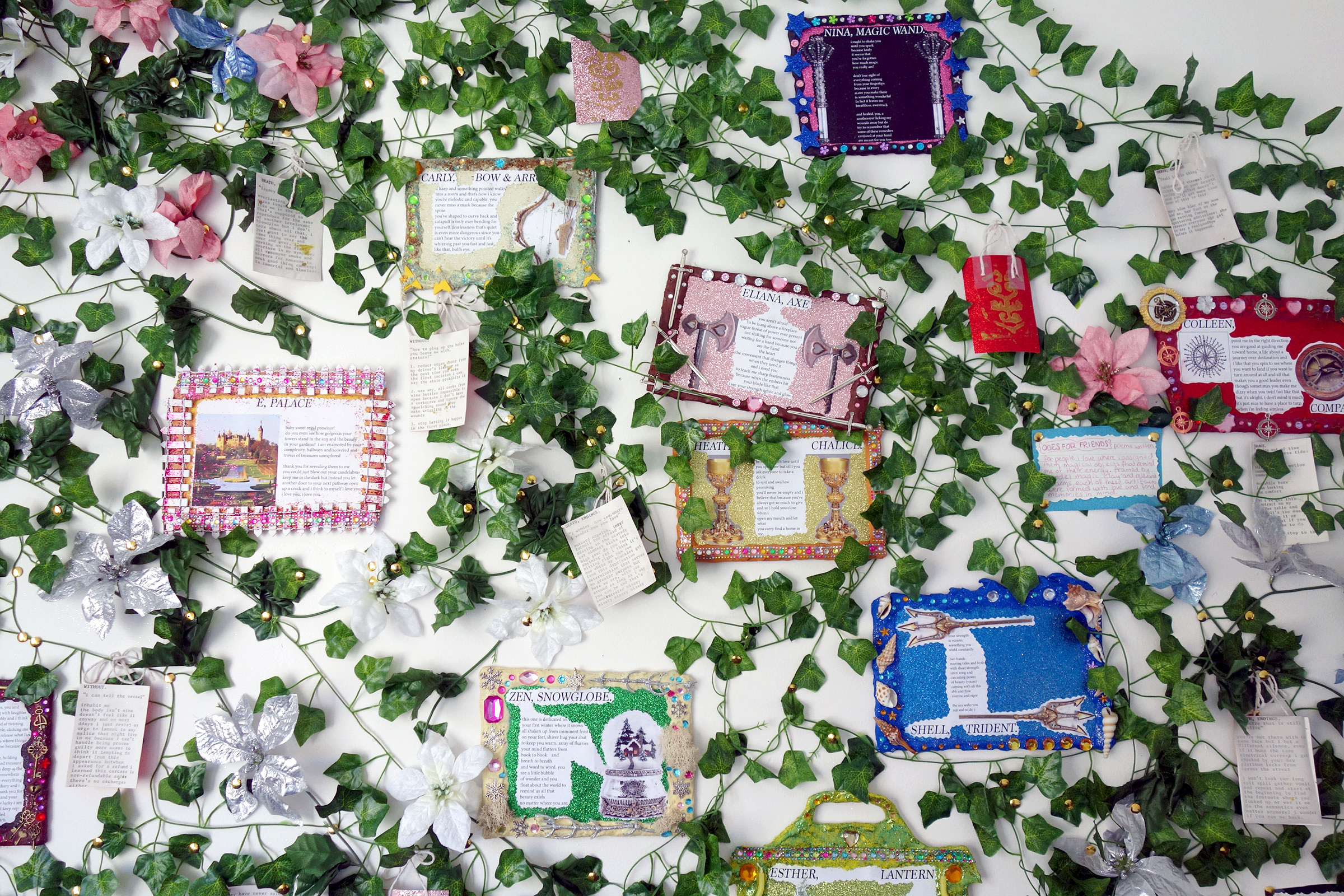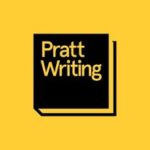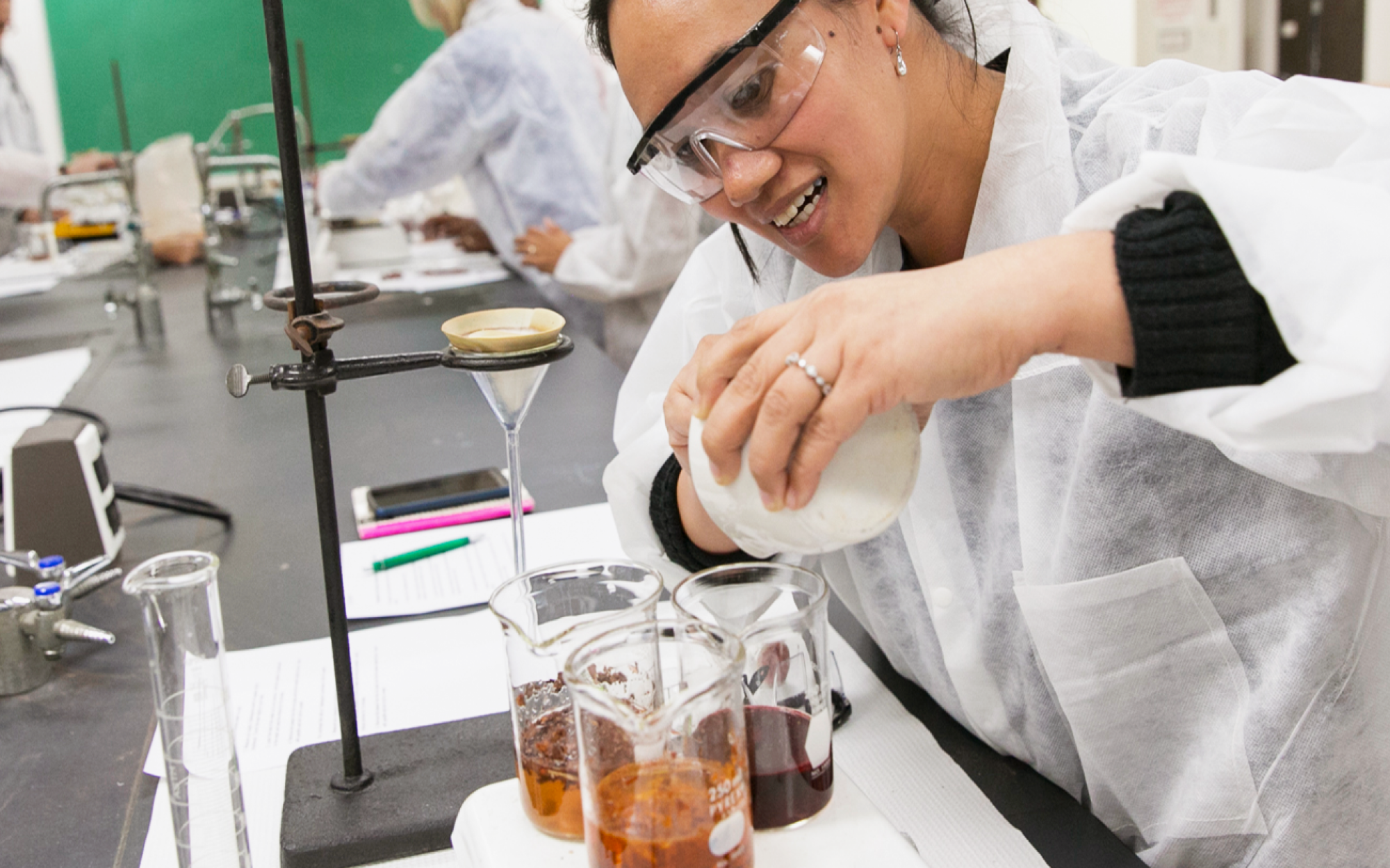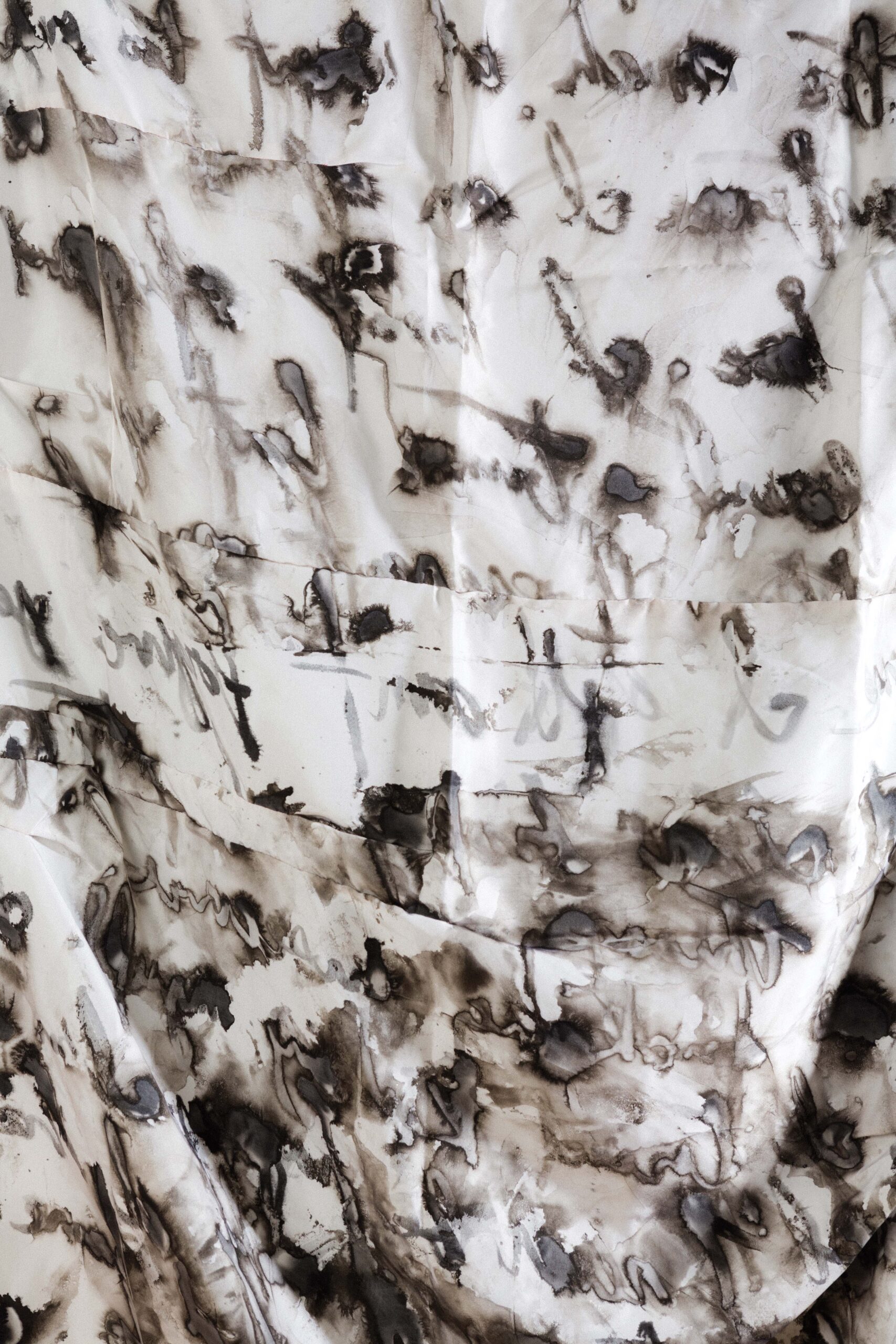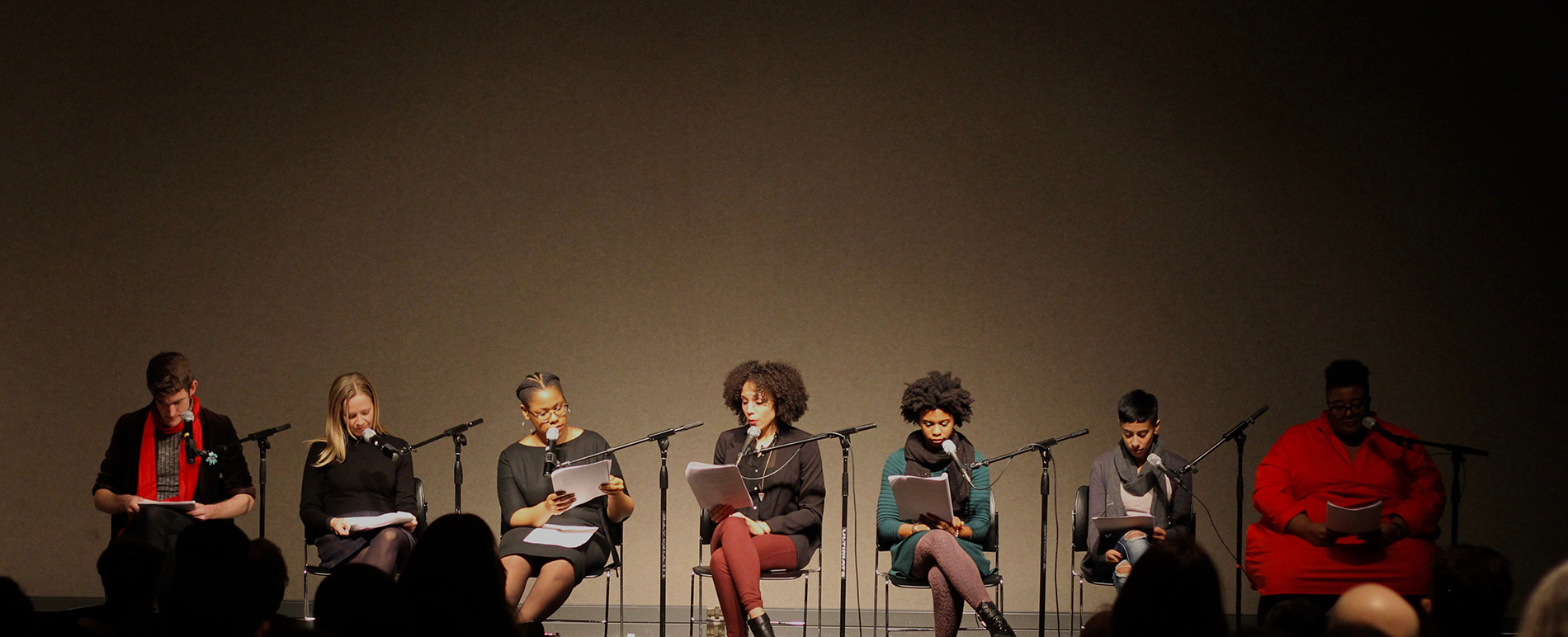
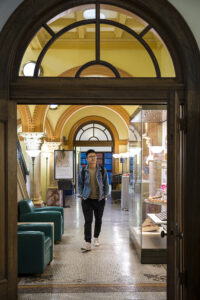
Writing at Pratt
Through weekly Writing Studio sessions with peers, faculty, and guest artists, writing practices seminars, unique electives, guided fieldwork residencies, and personalized faculty mentorships, you’ll join a community of writers invested in transdisciplinary experimentation and a rigorous study of literary arts.
Our program supports your development of a writing process that takes into account the material and technological aspects of writing, the human body that produces it, and the larger social, sexual, historical, economic, racial, and cultural contexts in which and through which all imaginative writing takes place.
The Experience
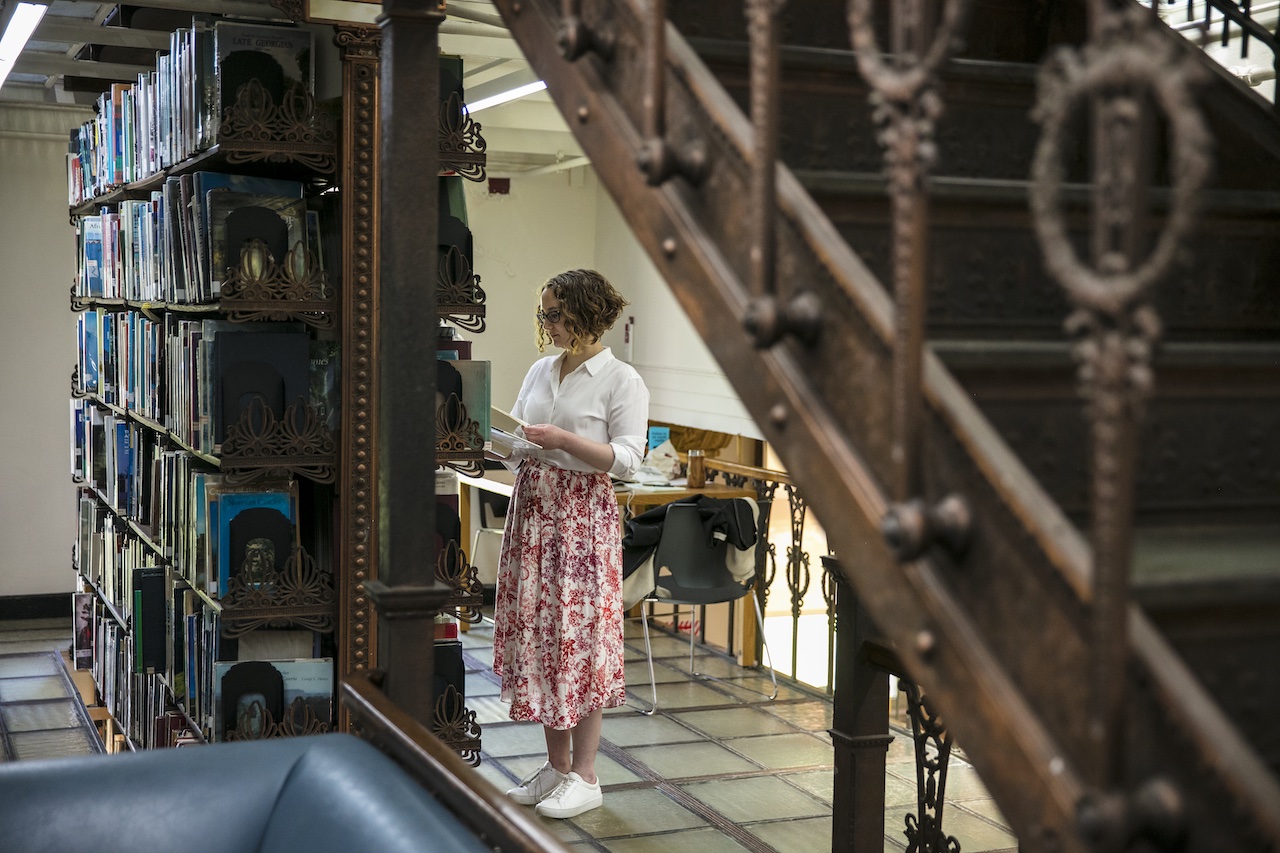
Transdisciplinary, socially engaged, and deeply personalized, our tight-knit writing community values a plurality of voices and approaches to writing, both on and off the page.
The program resides on Pratt’s Brooklyn campus, where Writing students enjoy dedicated 24/7 work spaces with desks, comfortable furniture, computers, free printing, art supplies, and a library of faculty, student, and alumni publications.
Pratt’s M.F.A. in Writing can be completed in four semesters of full-time study. We fund our students equally: for more information about student funding resources, please contact the program.
The Writing Studio
The Writing Studio lives at the center of our curriculum. Meeting weekly and co-led by collaborative faculty, studio is a scene for collective reading, study, inquiry, and critique. Breaking from traditional workshop norms, studio is a space of cross-genre, multimodal practice and experiments in pedagogy. Studio also includes our revision lab, in which a faculty member meets one-to-one with each student for post-critique reflection and manuscript review.
Mentored Studies
Through our Mentored Studies sequence, you and a faculty mentor will engage in regular, deep conversations throughout your time in the program. Your mentor will support the expansion of your writing practice and facilitate your thesis project. Past mentors include Anna Moschovakis, Sharifa Rhodes-Pitts, Mirene Arsanios, Ellery Washington, and James Hannaham.
Electives
You’ll participate in fascinating, small-sized seminars with our faculty in subjects such as multilingualisms, small press, ecopoetics, and experimental prose. You can also take advantage of space in our curriculum to pursue courses in Pratt’s celebrated art, design, and media studies programs, or to design your own custom independent study. Browse the full list of Writing MFA elective courses.
Publishing Collective
Each year, under the guidance of a faculty advisor, a self-selecting group of MFA students collaborates to solicit, edit, design and publish chapbooks by students enrolled in the program. These publications are celebrated in a culminating event, and are also distributed at local Brooklyn bookstores.
Fieldwork Residencies and Research Opportunities
Through the fieldwork course sequence you’ll study social practice methodologies and carry out a self-designed creative residency in collaboration with a literary institution, community organization, archive, or activist group of your choice. Past fieldwork sites include Wendy’s Subway, Nuyorican Poets Cafe, and The Poetry Project.
MFA Writing students also frequently pursue individual research projects supported by the program and by Pratt’s Graduate Student Engagement Fund. With GSEF support our students have mounted gallery exhibitions, shot films, and traveled internationally to develop research archives for their creative projects.
The Thesis
Supported by your mentor, thesis advisor, and other faculty readers, your studies will culminate in the creation of a full-length manuscript, with the freedom to incorporate multimedia, performance-based, or collaborative elements.
Our Faculty
The Writing MFA faculty work as a pedagogical collective to support your writing process and goals. Distinguished and daring writers, artists, researchers, translators, and editors, they bring diverse views, methods, and perspectives to creating the environment in which you’ll study and create. See all Writing faculty and administrators.
-
Christian Hawkey
Professor
-
Christopher Perez
Visiting Professor
-
Sharifa Rhodes-Pitts
Assistant Professor
-
Laura Elrick
Associate Professor
-
Anna Moschovakis
Adjunct Associate Professor – CCE
-
James Hannaham
Professor
-
Youmna Chlala
Professor
-
Mirene Arsanios
Adjunct Assistant Professor
-
Rachel Levitsky
Professor
-
Ellery Washington
Associate Professor
-
Hannah Assadi
Visiting Instructor
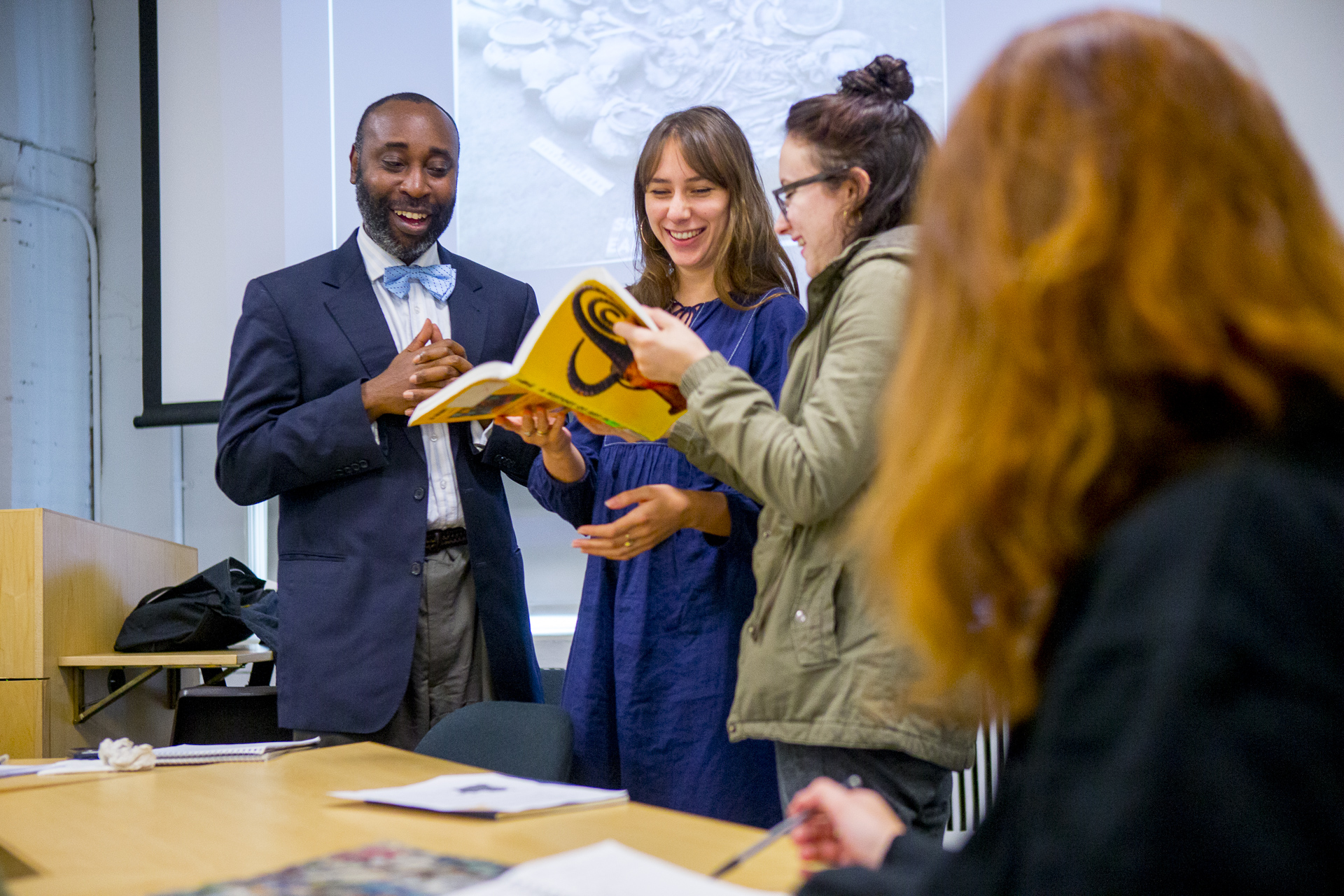
Our Alumni
Pratt’s distinguished alumni are leaders in an array of fields. They publish widely and have been awarded prestigious literary prizes. Their innovative work addresses critical social and political questions that reimagine our world.
Where They Work
- Jive Poetic, Friday Night Curator, Nuyorican Poets Café
- Erika Hodges, Law Clerk, Orleans Public Defender’s Office
- Alysia Slocum Laferriere, Editorial Fellow, Litmus Press
- Ahana Ganguly, Assistant Editor, Futurepoem Books
- Mahogany L. Browne, Executive Director, JustMedia
- Irene Lee, Co-Founder, Boar Hair Books and Oreades Press
- a.Monti, Editor at Litmus Press
- Angela Abiodun, Program Manager, The Octavia Project
- Zora Iman Crew, actor in The Daphne Project (2021), Planet X (2018) and The Legends of Sleepy Hollow (2021)
Publications and Awards
- Alisha Mascarenhas, author of A Catalogue of Risk (Wendy’s Subway, 2024), winner of the Carlyn Bush Award
- Stephon Lawrence, author of u know how much i hate being in social situations (Futurepoem, 2023)
- Hamid Roslan, author of parsetreeforestfire (Ethos Books, 2019), Shortlisted for the Singapore Literature Prize for Poetry 2020
- Mahogany L. Browne, author of Woke Baby (2018, Macmillan) Chrome Valley: Poems (National Geographic Books, 2023), Vinyl Moon (Penguin, 2022), and others
- a.Monti, author of Mycelial Person (Vegetarian Alcoholic Press, 2021)
- Jive Poetic, showcased on TVONE’s Lexus Verses and Flow, PBS News Hour, and BET
- Irene Lee, co-author of Six Endings and Some Beginnings (Ordeas Press, 2022)
Our Stories
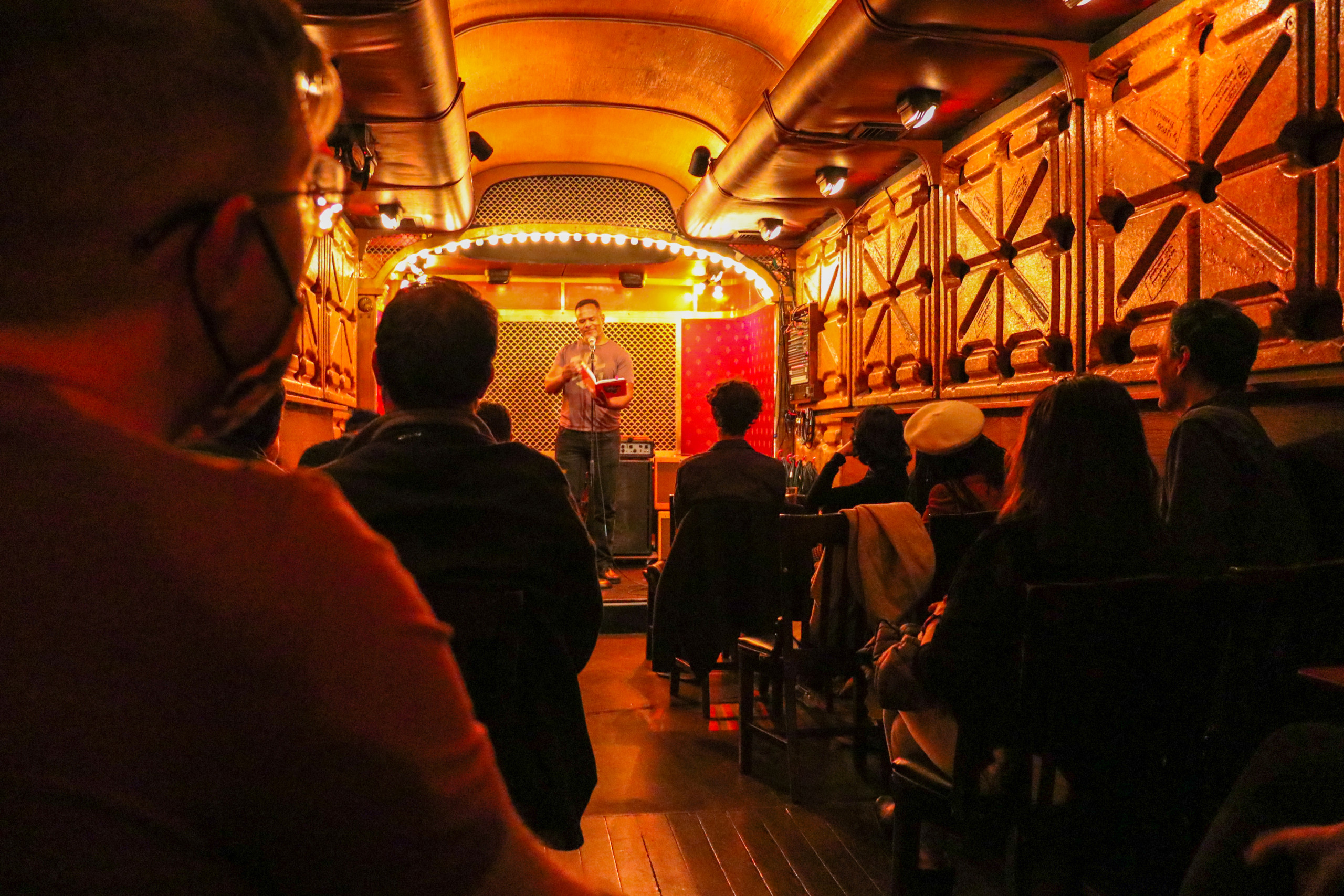
Literary City
Prattfolio Story
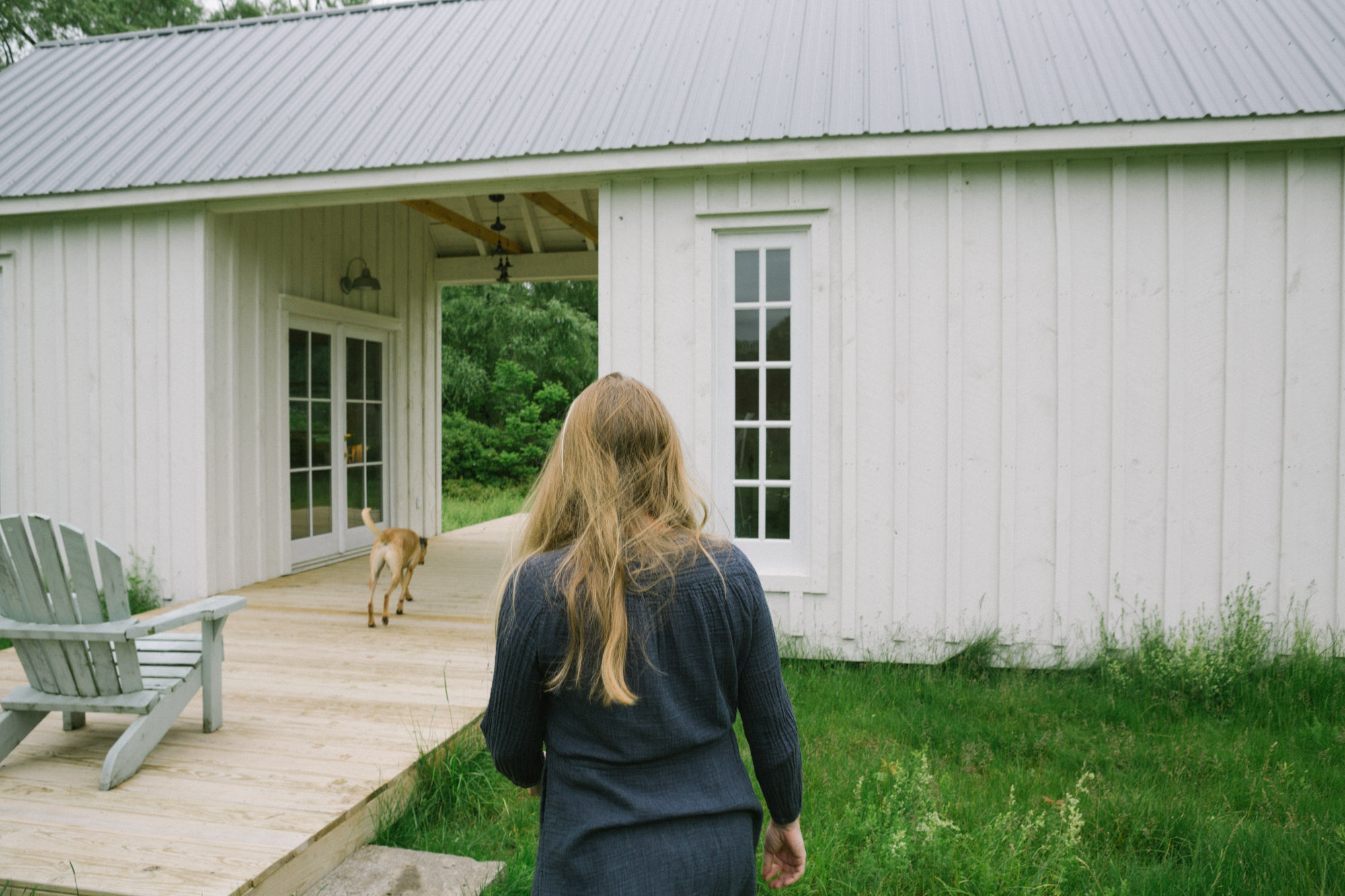
Revisited: From the Studio of Writing Professor Samantha Hunt
Prattfolio Story
Ready for More?
| HERE’S HOW TO APPLY | OUR CAMPUS & BEYOND |
|---|---|
| Join us at Pratt. Learn more about admissions requirements, plan your visit, talk to a counselor, and start your application. Take the next step. | You’ll find yourself at home at Pratt. Learn more about our residence halls, student organizations, athletics, gallery exhibitions, events, the amazing City of New York and our Brooklyn neighborhood communities. Check us out. |
